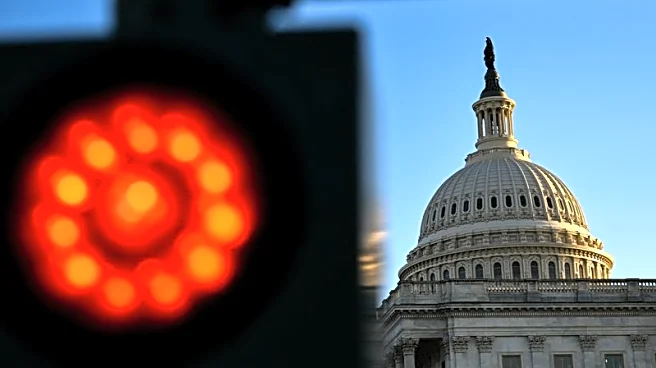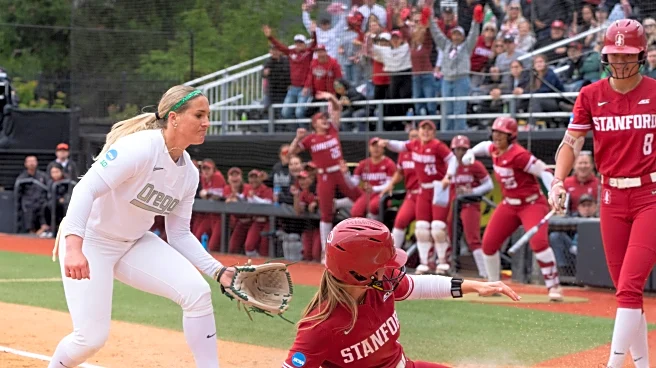By Bo Erickson and Leah Douglas
WASHINGTON (Reuters) -Crucial food assistance for about 6.7 million low-income Americans has been put in jeopardy by a federal government shutdown that the deeply divided U.S. Congress shows no signs of resolving swiftly.
The threat to the Special Supplemental Nutrition Program for Women, Infants and Children, known as WIC, illustrates how the effects of a shutdown that enters its second day on Thursday will reverberate out from Washington, taking more of a toll the longer
that Republicans and Democrats fail to reach an agreement to reopen government agencies.
The $7.6 billion program represents a tiny slice of the roughly $7 trillion federal budget, but unlike the Social Security retiree benefit and Medicare and Medicaid healthcare programs, WIC needs to be re-authorized by Congress every year.
The U.S. Department of Agriculture has said it will continue to administer WIC as funds allow, but Georgia Machell, president and CEO of the National WIC Association, said the program is critically low on funds given this shutdown's timing at the end of the fiscal year on Tuesday.
"A prolonged federal shutdown that lasts longer than one week is going to start to put babies and young children at risk," Machell said.
There are no votes expected in Congress on Thursday, which ensures the shutdown will last at least another day. As it continues, President Donald Trump's administration has begun to carry out its threats to cut programs and lay off more federal workers.
GOVERNORS AIM TO EXTEND PROGRAM
Outside Washington, governors, who are responsible for disbursing the federal WIC funds, have tried to reassure their constituents that they will do what they can to maintain services, which include food, nutrition counseling and other support to low-income Americans who are pregnant, breastfeeding or who have children under age 5.
Montana Governor Greg Gianforte's Republican administration said WIC funding will be provided through "at least the next month" and Connecticut's Ned Lamont, a Democrat, promised in a pre-shutdown video the state will keep WIC services for new mothers in the near term.
U.S. Senator John Fetterman of Pennsylvania said the WIC program was on his mind this week as he and two others in the Democratic caucus broke with the party and voted for the Republicans' short-term extension of current funds.
"That's one of the reasons why I voted not to shut the government down," Fetterman said on Wednesday, "Thankfully, our family isn't on WIC, but I know there are people... and they depend on these things."
All other Senate Democrats have withheld their votes to push for healthcare fixes before the end of the year, as well as the president's commitment to stop cuts to federal services and workers.
"At some point we need to take a stand," U.S. Senator Richard Blumenthal, a Connecticut Democrat, said about the strategy in relation to potential WIC impacts, "and hopefully the states will have those reserves to cover the most vulnerable."
DEMOCRATS, REPUBLICANS TRADE BLAME
The Trump administration has blamed Democrats for the shutdown and its accompanying risks to WIC.
"The Democrat shutdown is hitting rural America HARD," Agriculture Secretary Brooke Rollins posted to X on Wednesday, adding, "WIC and other key nutrition programs (are) at risk of running out of funding."
Democrats dismissed this criticism as disingenuous, pointing to the administration's proposed $300 million cut for WIC its 2026 budget request earlier this year.
Before the shutdown, that budget request was ignored by the Senate as it approved full WIC funding in the 2026 agriculture funding bill, but that has not become law.
“I’m worried about long-term impacts to WIC and short term," said U.S. Senator Jeanne Shaheen of New Hampshire, the top Democrat overseeing the program. "We have lots of women and children who are dependent on that, and without that funding they’re not going to be able to eat.”
The USDA could extend WIC funding by carrying over money from the prior fiscal year, using other unspent agency funds or reimbursing states for funding the program themselves, said the WIC association's Machell.
The USDA did not respond to a request for comment.
Senator John Hoeven, a North Dakota Republican who oversees agriculture funding, said the USDA in a Wednesday briefing shared its concerns that WIC funding could run short by October 15 and that the agency is looking into other funding provisions.
How long WIC can operate without disruption to benefits for participants will vary by state, said Katie Bergh, a WIC expert from the left-leaning Center on Budget and Policy Priorities.
"We are in uncharted territory at this point," Bergh said.
(Reporting by Leah Douglas and Bo Erickson in Washington; Editing by Scott Malone and Bill Berkrot)















